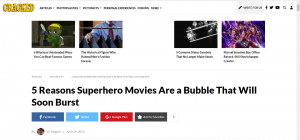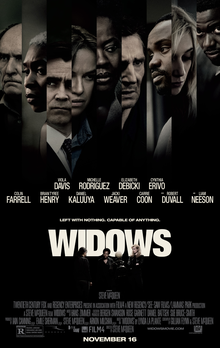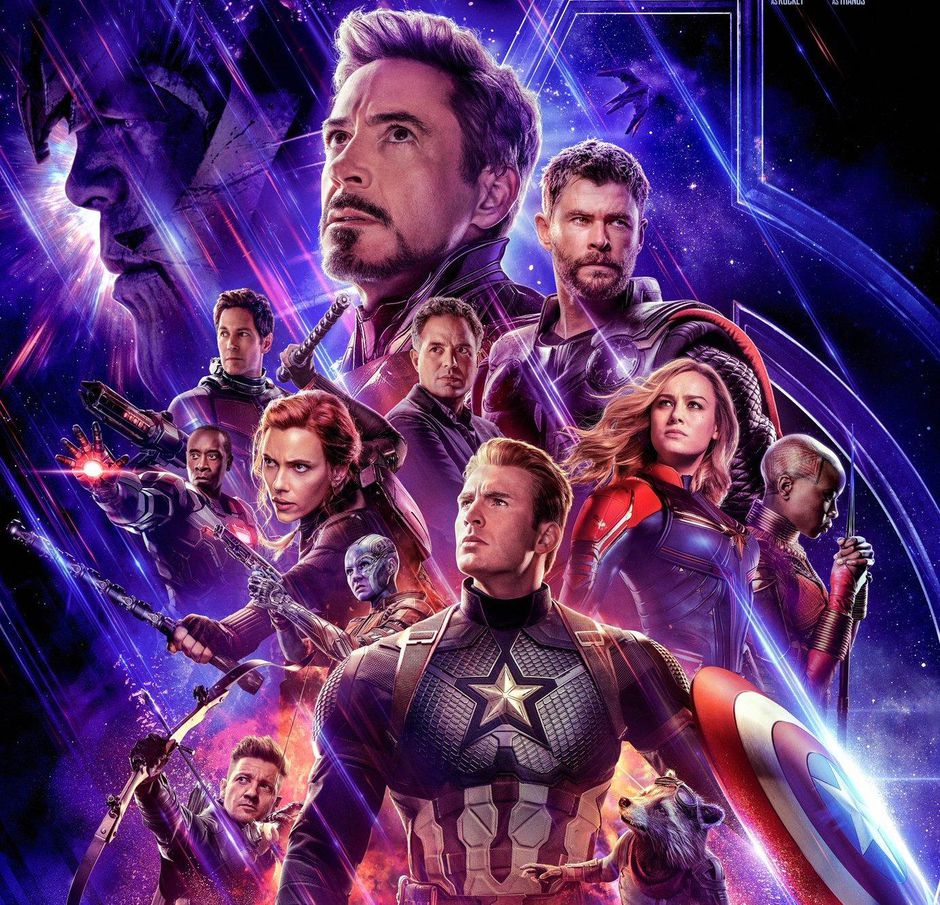Avengers: Endgame has decimated every box office opening weekend record in existence.
United Kingdom, India, China, North America, Ireland’s records all fell before Thanos and friends.
The fourth Avengers film surpassed even its own lofty expectations by delivering a 1.2 billion dollar opening weekend – nearly double of the previous record holder, Infinity War, which was released a mere 364 days before Endgame.
The narrative surrounding Endgame is that it’s now emerged as a contender to take Avatar’s crown as the biggest film of all time, not adjusted for inflation.
Any fears of the superhero movie bubble bursting have become unfounded.

All those articles from 2014 or 2015 saying that superhero movies have reached the point of diminishing returns are now eating humble pie.
The same company breaking the record for highest opening weekend box office a year apart with sequels in an ongoing narrative is a sure sign that the MCU is bulletproof right now, and will stay that way as long as Kevin Feige is in charge.
The only other main competitor to the throne, DC (under the stewardship of Warner Brothers), are aimlessly wandering around the landscape, with no cohesion, plan, or any sense of control.
They don’t have the genius and prodigious business sensibilities of Kevin Feige, but that’s for another article.
This article is discussing how the rest of the film industry can survive now that the Marvel Cinematic Universe essentially runs the table on contemporary studio making – and what will happen when the bubble does eventually burst.
A look at the top 5 movies at the box office at time of writing tells you everything you need to know about the current state of cinema.
In first place you have Endgame, in second place, you have Captain Marvel rising to 2nd place in its 8th weekend, a spin-off of The Conjuring universe, Shazam, and Breakthrough, a true story Christian drama, rounding out the top 5.
A look at the top 5 from the same weekend in 2009 has five original movies in the roster – a prestige drama with no Oscar pretensions, a teen comedy, a psychological thriller, a programmer music drama and a nature documentary.

Further back to 1999, you have a spy comedy with Sean Connery and Catherine Zeta-Jones, The Matrix, an Eddie Murphy comedy, a teen rom-com, and a crime comedy starring Robert De Niro in the top 5.

Most of those films listed go to straight to Netflix or Amazon these days, with The Matrix and Life, the nature documentary, the only movies that would still get a theatrical release in 2019.
The backbone of the film industry for many years was your 10 million dollar drama, your teen comedy with a star on the rise, a psychological thriller that gets a long life on free-to-air television, or a high-brow drama with one or two big stars in the cast.
If you look at the front page of Netflix, most of those movies I just described can be found on the front page, and are proudly trumpeted as Netflix originals.
Velvet Buzzsaw, Bird Box, The Highwaymen, High Flying Bird, Triple Frontier, Someone Great, The Perfect Date and The Dirt are the kinds of films that studios used to churn out dime-a-dozen.
Granted, they aren’t always good films (I mean, The Dirt, that’s a film that deserves its own Robert Mueller investigation) but that variety always meant there was something for everyone at the cinema, regardless of interests or tastes.
These hyper-tentpole films are so gargantuan that if you’re not interested in superhero shenanigans, you’re out of luck.
If you’re in the market to see a genuinely high-quality original film like Sorry To Bother You, Eighth Grade or High Life, you better live in Galway or Dublin because apparently Irish cinema chains think you’re a filthy beatnik for wanting to see a film approaching high-brow.

Film is a business at the end of the day, granted, but competition and variety is what keeps any business viable.
The superhero movie bubble will collapse someday, and it will bring down the entire industry with it, much like the Great Video Game Crash of 1983.
There will be a day when a superhero film only making a billion dollars overall will be considered a failure.
The Dark Knight making a billion dollars was considered something of a surprise in 2008.
Nowadays, that’s the expectation for your standard Marvel movie.
When the cookie-cutter family movie started experiencing diminishing returns and general audience apathy in the 60s, it paved the way for New Hollywood.
When the serious adult drama from the likes of your Mann’s or Verhoeven’s stopped being viable, more crowd-pleasing movies came in.
The failure of Widows last winter is sadly a perfect example of an adult prestige drama that ultimately sunk because people thought Bohemian Rhapsody was worth seeing in the screen next door, when it’s the kind of film that would have been a smash hit if it was released pre-2009.

When the superhero genre collapses under it’s own weight, there’s no safety net for the rest of the industry, there’s no real genre waiting in the wings to replace it.
What goes up must come down eventually, and no amount of smarmy Robert Downey Junior quips can stop the industry folding in on itself.
![]()


